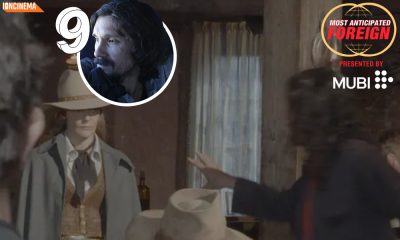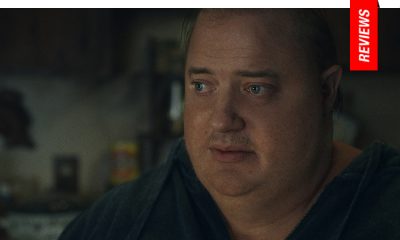Passion of the Christ Figure: Ridley Leans Religious in Stylized “The Passion of Darkly Noon” | Blu-ray Review
In the thirty years since he first became a cult favorite with his 1990 debut The Reflecting Skin, multifaceted English artist/director/novelist Philip Ridley has only helmed three features, and only one of those in his native England (his last feature, 2009’s Heartless). Arrow Video resurrects and restores his 1995 sophomore oddity The Passion of Darkly Noon, which resorts to similar religious themes in the American Deep South as a timeless Biblical themed allegory ensconced in the grim fixings of a minimal fairy tale. Despite its pronounced style and impressive production design, Ridley’s second outing is hampered by the stilted performances of its two American lead actors, Ashley Judd and Brendan Fraser, in what otherwise stands as a memorable viewing experience.
Darkly Noon (Fraser) is the child of strict, fundamentalist parents who are murdered in a military style attack on his isolated Christian sect. Stumbling through the woods wounded, he is discovered by Jude (Loren Dean), who brings him to the isolated home of Callie (Ashley Judd), with whom he develops an instant bond. Callie’s beau, the mute carpenter Clay (Viggo Mortensen) is currently away from home, off on one of his mysterious treks. When Clay returns home, the two men find themselves at odds over Callie, even though Darkly helps build some coffins, the products Clay sells to the local Quincy (Lou Meyers of “A Different World”).
Darkly is obviously attracted to the earthy and perpetually damp-skinned Callie, who languishes around the property in various mid-riff baring ensembles, which triggers his repressed sexuality and eventual ‘punishment of the flesh.’ A chance stumbling on Clay’s estranged mother in the woods, the onerous Roxy (Grace Zabriskie), helps convince him Callie is a dangerous witch and deserving of holy intervention.
Ridley once again earns comparisons to Lynch, employing one of that cult favorite’s usual cohorts, the enigmatic Grace Zabriskie, here playing a crazed woman of the woods who proves to be a toxic influence on the unhinged Darkly. Ridley reunites with his Reflecting star Viggo Mortensen and Fraser’s Darkly Noon seems to be the antithesis of Clay’s Jesus figure, whose moniker suggests the opposite of midday.
Religious zealotry, present in The Reflecting Skin, becomes the obsessive motif here, eventually mutating in a supernaturally tinged climax and a finale which descends into something a bit Felliniesque. However, Judd’s ill-conceived blonde mange paired with some hysterical overacting from both her and Fraser (who can never seem to nail the stutter Darkly is supposedly stricken with) cripple the film’s significant dramatic peaks.
Filmed in Germany, production designer Hubert Pouille (Mandy, 2018) and cinematographer John de Borman (The Full Monty, 1997; An Education, 2009) deserve credit for the film’s significantly intoxicating feel, and Ridley himself pens two moody soundtrack entries, including the end title sequence crooned by P.J. Harvey, “Who Will Love Me Now.” Those interested in American Gothic oddities from the period should definitely appreciate this underrated item, which falls short of being a masterpiece despite the visionary ambition of Ridley.
Film Rating: ★★½/☆☆☆☆☆
Disc Rating: ★★★½/☆☆☆☆☆



































